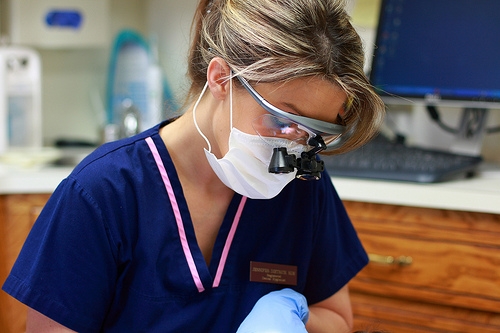
At Surf City Pediatric Dentistry, we know that hormones affect a woman's mood, but did you know they can also impact the health of a woman’s mouth? Women are susceptible to gum disease at different times in their lives, and research shows that hormonal highs and lows are part of the problem. According to studies, there are five situations in women’s lives during which hormone fluctuations make them more susceptible to oral health problems: puberty, their menstrual cycles, pregnancy, menopause, and birth control pill usage. So just what happens and how can you help protect your oral health? Dr. Guijon and our team have outlined the five hormonal situations and provided a few tips and tricks to fending off potential issues.
Puberty - The surge of hormone production that occurs during puberty can increase the blood flow to the gums and change the way gum tissue reacts to irritants in plaque. As a result, a woman's gums may bleed during the act of brushing and flossing.
Monthly menstruation cycle - Hormonal changes (especially the increase in progesterone) occur during a woman’s menstrual cycle. These changes can lead to red swollen gums, swollen salivary glands, canker sores, or bleeding gums.
Pregnancy - Hormone levels tend to fluctuate during pregnancy. As a result, women are at greater risk to develop a condition called gingivitis, the early form of gum disease. Dr. Guijon may recommend more frequent professional cleanings during your second or early third trimester to help reduce the chance of developing gingivitis. Please let us know if you are pregnant during your visit.
Menopause - Women are known to experience numerous oral changes as they age. These oral changes can include greater sensitivity to hot and cold foods and beverages, a burning sensation in your mouth, or dry mouth. Dry mouth, also known as xerostomia, can result in the development of tooth decay and gum disease because saliva is not available to moisten and cleanse the mouth. It is important to know that dry mouth can also result from many prescription and over-the-counter medications. The gradual loss in estrogen that occurs with menopause also puts older women at risk for loss of bone density, which can lead to tooth loss. Receding gums, which expose more of the tooth surface to potential tooth decay, can be a sign of bone loss in the jawbone.
Birth control pills - Some birth control pills contain progesterone, which increases the level of that hormone in the body. Women who take pills with progesterone may develop inflamed gum tissue due to the toxins produced from plaque. Be sure to tell us if you are taking an oral contraceptive during your visit.
To prevent gum disease, we recommend:
- Brushing your teeth at least twice a day with a toothpaste containing fluoride
- Flossing at least once a day
- Eating a well-balanced diet
- Avoiding sugary or starchy snacks
Dr. Guijon and our team at Surf City Pediatric Dentistry encourage you to visit our Huntington Beach, CA office and practice good oral health habits at home.
 Surf City Pediatric Dentistry would like to wish all our patients a great 2015-2016 school year! We would love to help make this a great first day of school for you.
Surf City Pediatric Dentistry would like to wish all our patients a great 2015-2016 school year! We would love to help make this a great first day of school for you.



